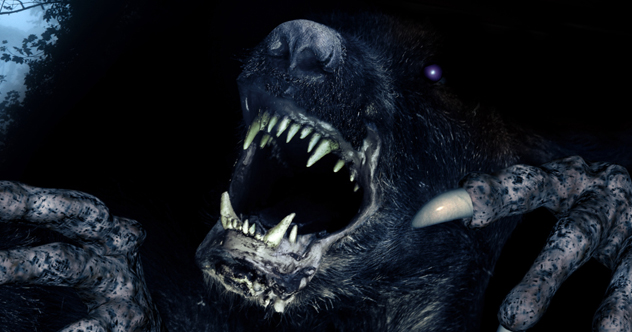The Dark on the Other Side (1970)
When talented young biographer Michael Collins is selected to write the biography of famous modern day Renaissance man and recluse Gordon Randolph, he only thinks of it as a fantastic opportunity. But it takes only one visit to the great man's home to sense something amiss--Gordon is frantic with worry about his beloved wife Linda, whose beauty and brilliance seems to be vanishing under the influence of heavy drinking and terrified hallucinations of a black dog. Yet the further Mike digs, the more Gordon's notorious charm seems to be a facade for something dark that reaches out and destroys those around him...
In a style and tone slightly reminiscent of Prince, the book starts off trying to confuse you about who is the hero and who is the villain. But as is true of good mysteries, the surface does not reflect the depths. And it doesn't take a genius to guess from the first page that something is seriously amiss with the idea of Gordon as a saint and Linda as mentally ill.
Also reminiscent of Prince are the POV choices, and the satanic witchcraft that's the core of the evil: Linda and Mike trade off on viewpoints, and Gordon Randolph commits unspeakable rites in his tower. But Dark goes full Gothic: Gordon's powers, while sniffed at by Van Helsing-character Dr. Galen Rosenberg (who is himself more white wizard than psychiatrist, whatever he might claim) as hypnotism and delusion, seem too malignant and real to be anything more than fact. In fact, I would argue this is one of the earliest MPM books to actually use a supernatural element as a real force, rather than a metaphor (aside from Ammie, naturally).
Linda's plight is a poignant one (although I will always resent the way her character becomes a subdued pawn by the final confrontation). She is the stand-in for so many emotionally and psychologically abused wives, gaslit into doubting their own sanity. Mike's dismissive statement that women in unhappy marriages can "just get a divorce these days" is proved adamantly wrong by her desperate, futile struggle to escape Gordon's control. I find it significant this book was published the year after MPM's divorce of her own husband, and I have to wonder if Linda's melancholy fear that the ability to love has been burned out of her is a reflection of MPM's own mental state. Considering the unhappy love affair in 1971's Hundred Rabbits, and that both books end on what feels like a forced romantic happiness, it seems to be a bit of a trend.
Favorite Line: "God damn it, I hope that old saw about animals reflecting the personalities of their owners isn't true. You make me look like some kind of nut."
Rating: **
Notes:
*I chose "Fire and Rain" for listening because it strikes me as the kind of song the bittersweet 'Kwame' might have written if his genius hadn't been stolen by Gordon's vampiric personality.
*Note Galen's painful background as a holocaust survivor. These moments of historical framing are so poignant in contemporary novels like this.
Linda's plight is a poignant one (although I will always resent the way her character becomes a subdued pawn by the final confrontation). She is the stand-in for so many emotionally and psychologically abused wives, gaslit into doubting their own sanity. Mike's dismissive statement that women in unhappy marriages can "just get a divorce these days" is proved adamantly wrong by her desperate, futile struggle to escape Gordon's control. I find it significant this book was published the year after MPM's divorce of her own husband, and I have to wonder if Linda's melancholy fear that the ability to love has been burned out of her is a reflection of MPM's own mental state. Considering the unhappy love affair in 1971's Hundred Rabbits, and that both books end on what feels like a forced romantic happiness, it seems to be a bit of a trend.
Favorite Line: "God damn it, I hope that old saw about animals reflecting the personalities of their owners isn't true. You make me look like some kind of nut."
Rating: **
Notes:
*I chose "Fire and Rain" for listening because it strikes me as the kind of song the bittersweet 'Kwame' might have written if his genius hadn't been stolen by Gordon's vampiric personality.
*Note Galen's painful background as a holocaust survivor. These moments of historical framing are so poignant in contemporary novels like this.


Comments
Post a Comment